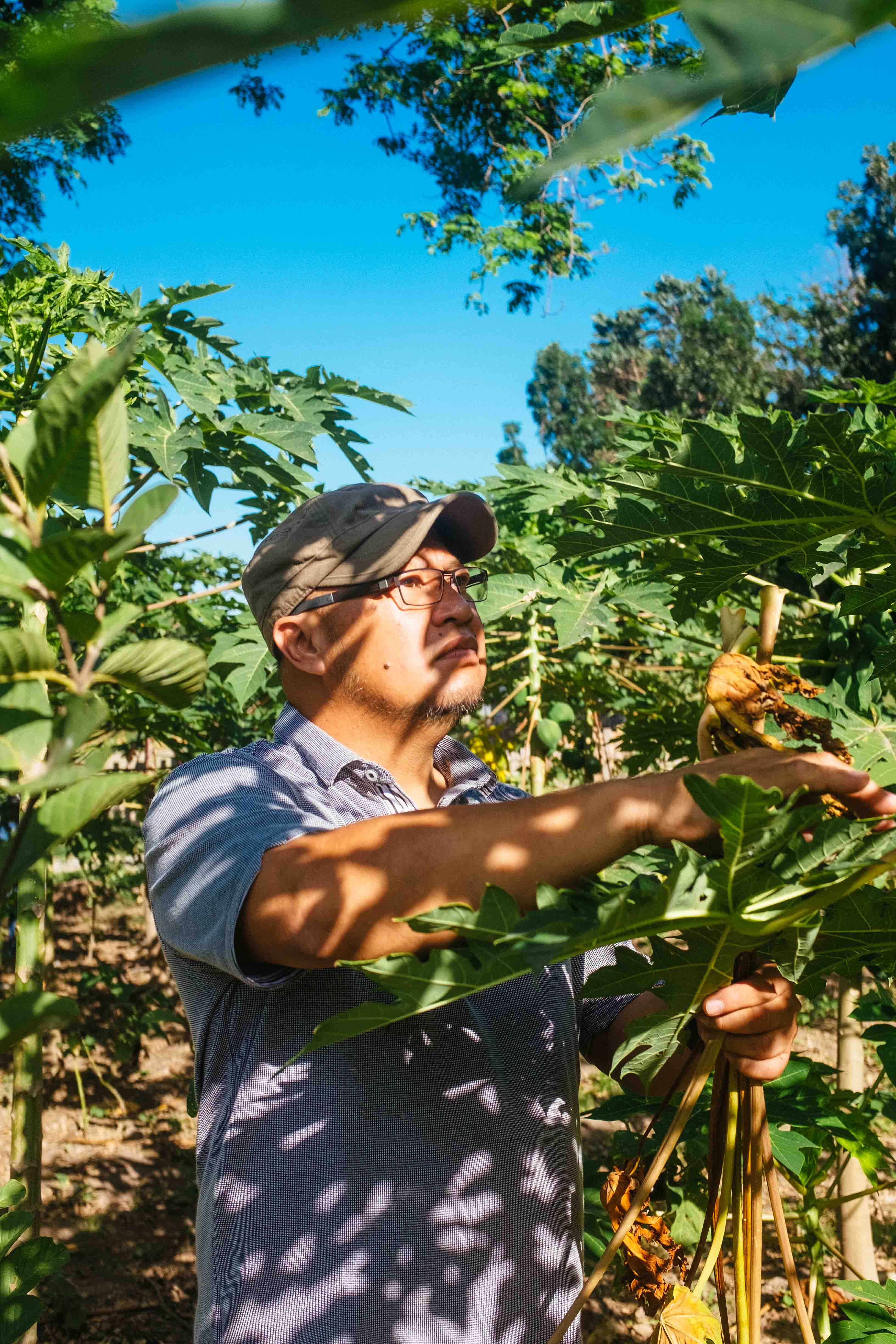“I’m not sure what my profession is. Am I a farmer, a lawyer, or a social worker?” ponders Atty. Angelo Valencia, fondly known as Kuya Pultak. This Tuesday afternoon, he’s at a farm to assist in the care of a horse that had just given birth.
With his nomadic lifestyle, Valencia has found plenty of places to call home, from the slopes of Mt. Pulag to the deep seas of Palawan. At Tibby’s Farm, he intends to build a close-knit community for the benefactors of Klasrum ng Pag-asa, the same people who had welcomed him into their homes. “You need to have a community where people can learn, where they can feel safe, and where they can grow. That’s what we’re doing in the farm,” Valencia says.
Why is it important for us to build communities?
If we’re going to do something, we have to do it as a community because that’s what bayanihan is. I’ve always believed that where you were born, where you live, where you’ve studied is the place you have to work with. You have to be in your community and be a factor in its development. We must build where the streets have no names and where the roads end, and those who have had less should have more—these are the indigenous people. No offense, but the future of this country is not found in cities. Rather, it’s in the hearts and minds of the countryside. That needs to be imparted to those living in cities, so they could shed off their mantel of entitlement.
In building communities, how do you deal with stubborn people who refuse to cooperate?
It takes a lot of patience. When I was a child, my mom would tell me to visit the playground. There are bullies there, I would tell her, and she’d answer, “How else would you learn? Life is like a jungle full of animals. You have to learn not to fight with them but to make sure that they see things your way.” So, what do we need? Patience. As I put it, “stay a day longer.” There may be catastrophes, but they eventually end anyway.
[one_half padding=”0 5px 0 5px”]

“You need to have a community where people can learn, where they can feel safe, and where they can grow. That’s what we’re doing in the farm.”
Angelo Valencia
What have you learned from different regions of the Philippines?
In Sulu, honor is very important—martabat. For the Tausugs, they say what they mean, mean what they say, and do what they do. Everyone complies with these principles and also hold each other accountable. In the north, the education of the kids is primary; they put the interest of their children first. As for the children, they bond together and disregard interfamily squabbles. Here in the city, we have to continually impress upon our partners that no matter how talented they are, it’s not about them. [Our work] is never about the trophy, never about a medal.
This story was originally published in Northern Living, March 2017.